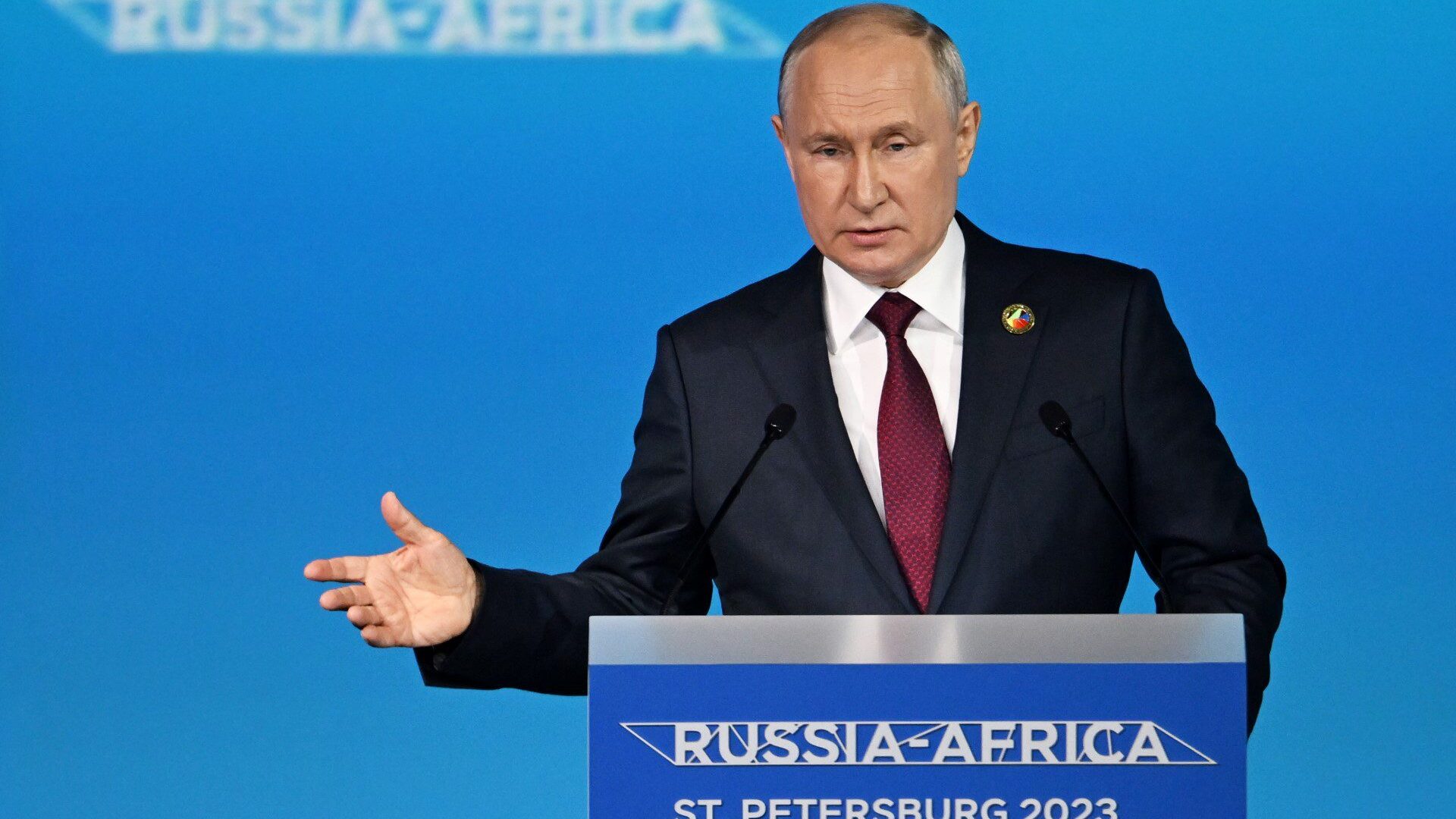
Russian President Vladimir Putin giving a speech during the plenary session of the second Russia-Africa summit in Saint Petersburg on July 27, 2023.
Photo: Pavel BEDNYAKOV / POOL / AFP
Ahead of the two-day Russia-Africa Summit in St. Petersburg that kicked off on Thursday, July 27th—and as part of what it sees as its mission to establish a multipolar world—Russia earlier this week announced its intention to open embassies in nearly all African countries.
Speaking to the press on Tuesday, July 25th, Oleg Ozerov, the Ambassador-at-Large of the Russian Foreign Ministry and head of the secretariat of the Russia-Africa Partnership Forum, said:
Relevant decisions are being prepared. I think they will be adopted. We will start with a small number, but I hope that eventually, we will reach the opening of embassies in almost all African countries.
Ozerov described the decision taken by the cash-strapped Russian government to cease some of its diplomatic missions in Africa in the 1990s as an “incorrect move,” and added that with its plans to bolster its presence and strengthen diplomatic ties with African countries, Moscow seeks to rectify the situation.
Following the collapse of the Soviet Union, the Russian Federation, its successor state, drastically scaled back its diplomatic presence on the African continent in the 1990s, closing down its embassies in Niger, Somalia, Sierra Leone, Burkina Faso, Equatorial Guinea, and Sao Tome and Principe, among others.
Only a few weeks after the St. Petersburg International Economic Forum (SPIEF), Russian President Vladimir Putin will once again play host to a sizable contingent of African dignitaries at this week’s Russia-Africa Summit. Moscow says a total of 49 African delegations, including 17 heads of state, have confirmed their participation in the summit, down considerably from the 45 leaders who attended the last such event to take place in 2019.
The Kremlin earlier this week accused the West, particularly the United States, of working to sabotage the summit, saying that African countries had been subjected to “unprecedented pressure” to boycott the gathering.
Kremlin spokesman Dmitry Peskov said that “they,” referring to the collective West, do not “accept the sovereign right of African states to independently determine their partners for cooperation and mutual interaction in various fields.
Speaking on the first day of the summit, Russian President Vladimir Putin sought to calm growing fears of a potential global food crisis precipitated by the abrupt termination of the Ukraine grain deal which had previously allowed Kyiv to ship vital grain exports out of the port of Odesa.
“Our country will continue supporting needy states and regions, in particular, with its humanitarian deliveries. We seek to actively participate in building a fairer system of distribution of resources. We are taking maximum efforts to avert a global food crisis,” Putin said during his opening remarks at the summit.
“I have already said that our country can replace Ukrainian grain, both on a commercial basis and as grant aid to the neediest African countries, more so since we expect another record harvest this year,” he continued.
Putin even went so far as to promise up to 50,000 tons of free grain supplies to six African countries. “In the coming months, we will be ready to provide Burkina Faso, Zimbabwe, Mali, Somalia, the Central African Republic and Eritrea with 25,000-50,000 tonnes of grain free of charge,” Putin told African leaders in attendance at yesterday’s conference.
